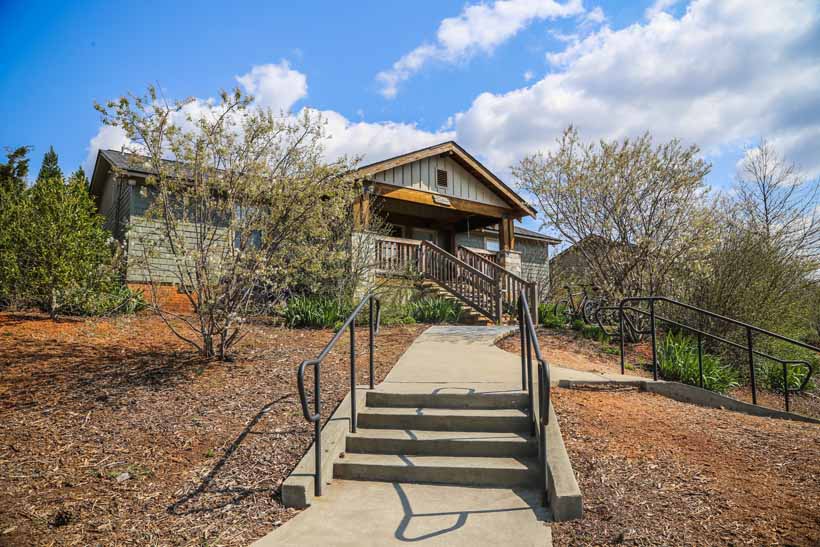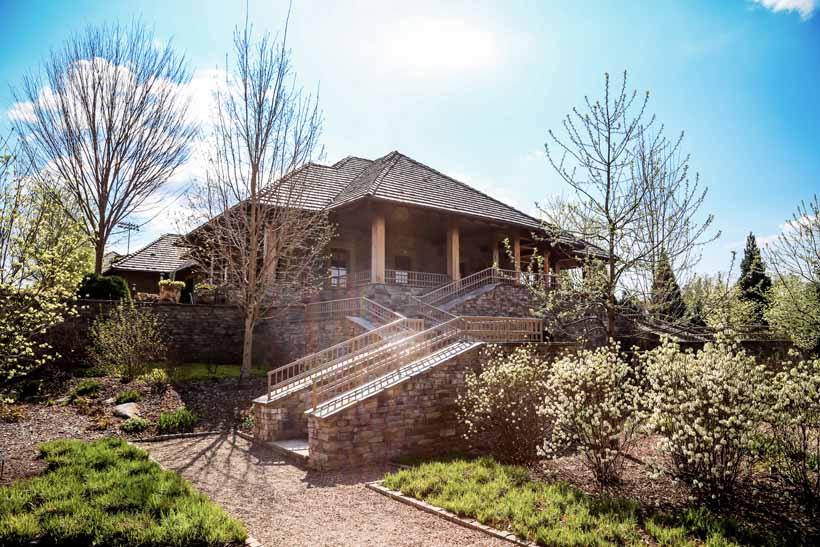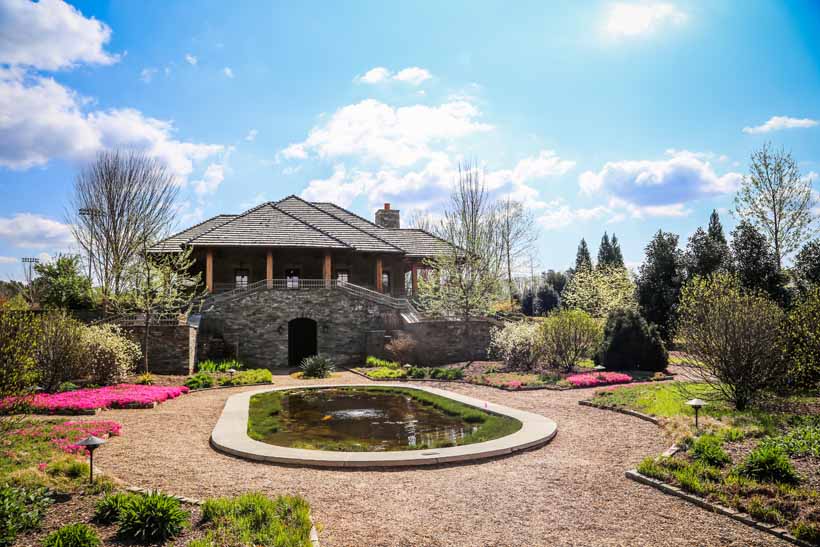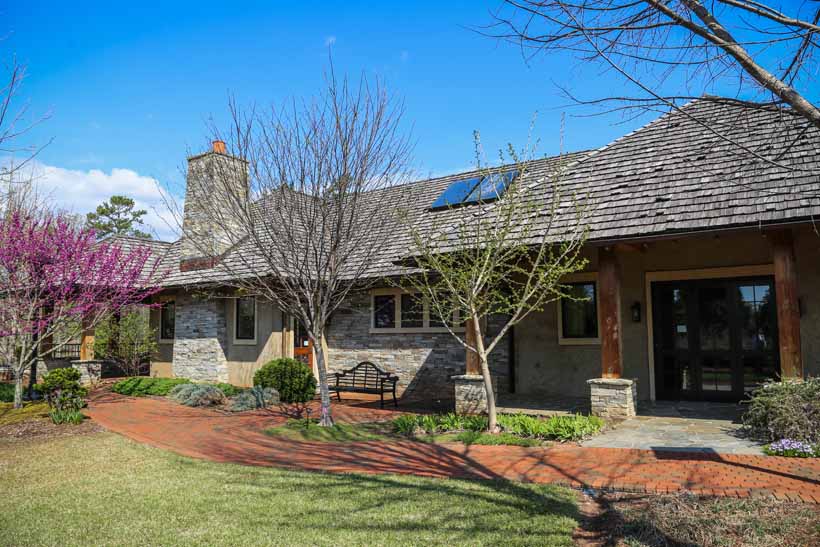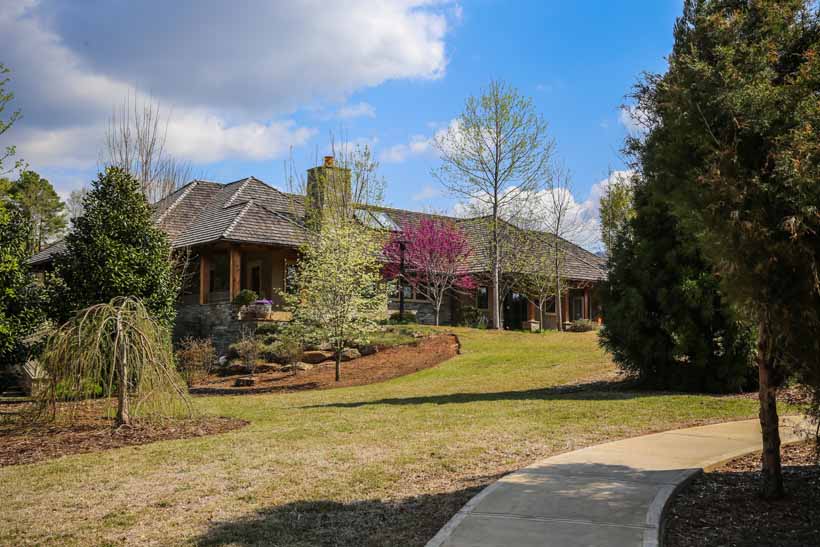Managing power use more efficiently. Through a partnership with Charlotte-based Duke Energy, the house utilizes GridPoint technology to monitor energy. The consumer and the power company can monitor circuits in the house to determine the most efficient use of power.
Solar energy to heat water. With two small solar panels on the roof above the kitchen, the sun heats water before it hits the tank in the basement. That way, the consumer isn’t using electricity to heat cool water; you only expend energy to heat water that falls below your preset temperature.
The home that requires less energy. The Cliffs Cottage incorporates double-insulated windows and doors, Icynene insulation, and spider fiberglass insulation made from recycled material to create a draft-free home. By sealing the ductwork properly and balancing the system, the consumer does not waste energy to condition air in the basement or attic.
Material decisions. The stone on the exterior was quarried from the nearby mountains; cabinets came from neighboring Tennessee, were were shipped flat to save on transportation costs and were assembled on-site; the framing reduced waste by using more of the tree, keeping Triangle from having to discard or pick through bad lumber. There was about a 9% in material savings compared to using conventional lumber.
Southern Living Magazine touts the Cliffs Cottage to be their “most innovative house ever.”



